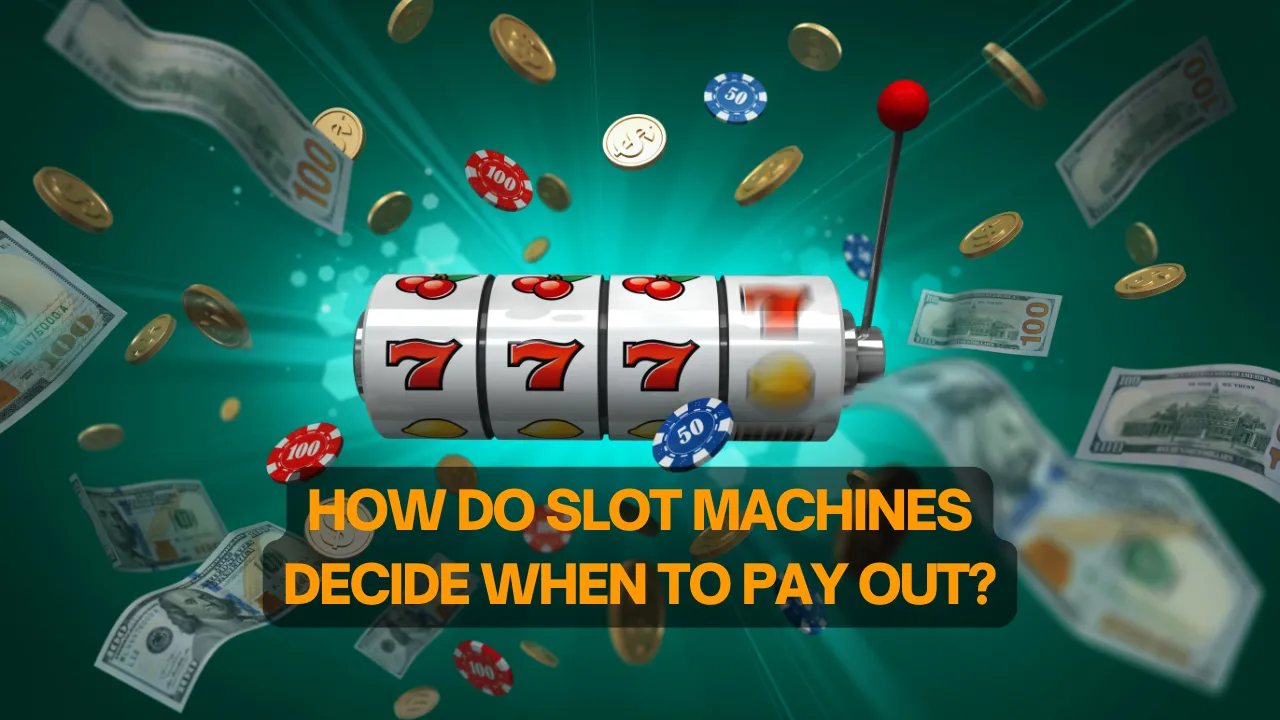If you’ve ever sat in front of a slot machine, you’ve probably wondered how it knows when to reward you with flashing lights, ringing bells, and a stream of coins—or, more realistically these days, a digital balance increase. For many players, the process seems mysterious, almost like luck being handed out by the casino itself. But behind every spin is a sophisticated system of mathematics and computer programming that determines the outcome. Understanding how slot machines decide when to pay out not only makes the experience less mysterious but can also make you a more informed player.
The Role of Random Number Generators
At the heart of every modern slot machine is the random number generator (RNG). This is a specialized algorithm that continuously produces sequences of random numbers, even when no one is playing. The instant you press the spin button or pull the lever, the RNG stops on a number, which then corresponds to a specific combination of symbols on the reels.
What’s important to understand here is that the outcome is already decided the moment you initiate the spin. The animation of the reels turning is just a visual representation of what the RNG has already determined. This means that no matter how long you wait between spins or how you press the button, the result is based purely on chance and mathematics—not timing or “lucky touches.”
Payout Percentages and House Edge
Slot machines are designed with something called a Return to Player (RTP) percentage. This number, often ranging from 90% to 98% in many jurisdictions, indicates how much money a slot is programmed to pay back to players over time. For example, a slot with a 96% RTP will, in the long run, return £96 for every £100 wagered.
But here’s the key point: this doesn’t mean you will get £96 back for every £100 you play. RTP is calculated over millions of spins, meaning individual results can vary wildly. One person might hit a jackpot within a few spins, while another may play hundreds of times without a big win. The RTP simply ensures that, statistically, the machine meets its programmed payout over the long term.
The casino makes money through the “house edge,” which is the difference between 100% and the RTP. If a slot has an RTP of 96%, the house edge is 4%, which is how casinos profit while still allowing players to win.
Why Payouts Feel Random
If you’ve ever had a winning streak followed by a dry spell, it can feel like the slot machine is deliberately “tightening” or “loosening.” In reality, that’s just how probability works. Randomness doesn’t mean evenly spread wins—it means outcomes can cluster. You might win several times in a row or go a long stretch without hitting anything. Both situations are perfectly normal in the world of probability.
This is also why some players believe machines are “due” for a payout after a long losing streak. But the truth is, each spin is independent of the last. The RNG doesn’t keep track of your past wins or losses. So whether you just hit a jackpot or haven’t won in hours, the odds remain the same every time you spin.
The Psychology of Slot Payouts
Casinos know that part of what keeps players engaged is the feeling of near misses and small wins. That’s why machines often give you “teasers” where two jackpot symbols line up but the third just misses. Or they award small wins that don’t cover your original bet but still trigger celebratory sounds and graphics.
These psychological tricks are designed to keep you playing by making it feel like you’re always close to a big win. While the underlying math determines payouts, the design ensures that the experience keeps you entertained—and invested.
Online Slot Machines and Fairness
In online casinos, the principle is the same. RNGs are used to determine outcomes, and independent auditors test games to ensure fairness. Regulatory bodies in licensed jurisdictions require online operators to meet strict standards so that players can trust the games aren’t rigged.
One key difference with online slots is transparency. Many online casinos openly publish RTP figures, so you can see which games offer higher returns. Land-based casinos, on the other hand, rarely display this information.
Where Fast Payouts Matter
While understanding how machines decide when to pay is important, another key factor for players is how quickly they can access their winnings. Some casinos are notorious for slow withdrawal processes, requiring days of verification before you see your money. This is where choosing fast withdrawal casinos makes a big difference. They ensure that once you win, you don’t have to wait endlessly to enjoy your payout. The speed of cashing out is almost as important as the fairness of the slot itself, especially for players who value efficiency and transparency.
My Personal Take on Slot Payouts
As someone who has spent time both studying the mechanics and casually playing, I’ve realized that the biggest misconception is thinking there’s a way to “time” or “influence” payouts. The reality is that the math doesn’t lie: slots are random, and the outcomes are independent of anything you do.
That said, you can make smart choices. Picking games with higher RTP percentages gives you a statistical advantage over the long run. Setting limits on your play helps you enjoy the entertainment without falling into the trap of chasing losses. And when you do land a win, choosing casinos that pay out quickly means the experience ends on a high note rather than frustration.
Final Thoughts
Slot machines decide when to pay out through carefully designed random number generators and predetermined payout percentages. There’s no secret formula or hidden switch—just mathematics and probability at work. While you can’t change how the machine decides, you can control how and where you play. Choosing games with higher RTPs, setting personal limits, and sticking to trustworthy casinos with fast withdrawals ensures that your slot experience is both fun and fair.
At the end of the day, slots are about entertainment. If you approach them with knowledge and realistic expectations, you’ll not only enjoy the game more but also protect yourself from common misconceptions and frustrations.











